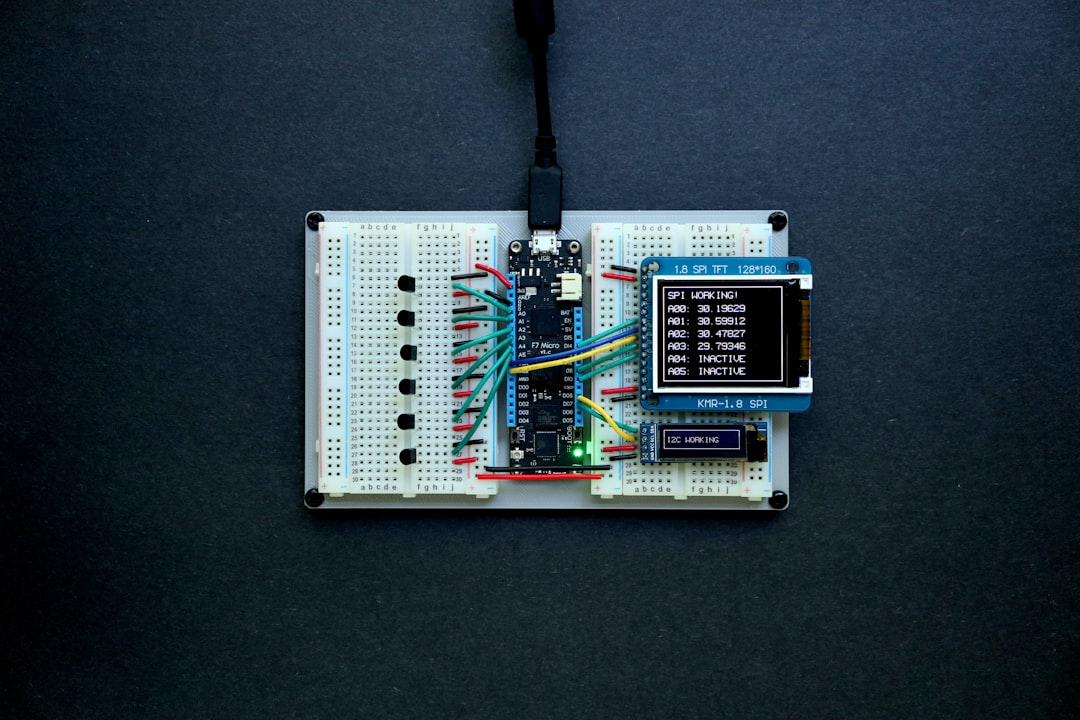
Microcontrollers Enable Decentralized Network Routers through Innovative Cascading Initiative
In today’s rapidly evolving technological landscape, the need for robust and efficient networking solutions is more critical than ever. Among the forefront of these solutions is the innovative concept of Microcontrollers Enable Decentralized Network Routers through Innovative Cascading Initiative. This initiative not only enhances the functionality of network routers but also offers a pathway to decentralized networking, ensuring greater reliability, security, and flexibility.
Understanding Microcontrollers in Networking
Microcontrollers are compact integrated circuits designed to govern a specific operation in embedded systems. In the context of networking, microcontrollers play a vital role in enabling decentralized routers to process data, manage connections, and perform intelligent routing decisions. By leveraging microcontrollers, networking devices can operate independently without relying on a central authority, thereby increasing resilience against failures and attacks.
Decentralized Networking: A Paradigm Shift
Traditional networking architectures typically rely on centralized servers and routers to manage data traffic. However, as the demand for bandwidth and data processing grows, this model has shown limitations in terms of scalability and vulnerability. The Innovative Cascading Initiative aims to mitigate these issues by promoting decentralized networking, where multiple routers equipped with microcontrollers can communicate and collaborate without a central point of control.
This decentralized approach allows for the following:
- Increased Reliability: By distributing the network load across multiple routers, the failure of a single device does not cripple the entire network.
- Enhanced Security: Decentralized systems are inherently more secure, as there is no single point of attack.
- Scalability: New routers can be added to the network seamlessly, adapting to growing demands without extensive reconfiguration.
Current Developments in Decentralized Routers
Recent advancements in microcontroller technology have led to the creation of more powerful and efficient routers. For example, the integration of low-power microcontrollers in wireless routers has made it feasible to create energy-efficient networks that can operate in remote areas without access to traditional power sources. Additionally, these microcontrollers are capable of running sophisticated algorithms for data routing and traffic management in real time.
Case Study: The Implementation of Microcontrollers in Rural Areas
A notable example of this initiative in action is the deployment of decentralized network systems in rural communities. By using microcontroller-based routers, these communities have successfully established reliable internet access, bridging the digital divide. The routers operate in a mesh network configuration, allowing them to self-organize and optimize data flow, ensuring that even in tough terrain, connectivity remains intact.
Emerging Trends in Decentralized Networking
As the Microcontrollers Enable Decentralized Network Routers through Innovative Cascading Initiative continues to gain traction, several emerging trends are becoming apparent:
- Edge Computing: By processing data closer to the source, microcontroller-enabled routers can reduce latency and improve overall network performance.
- IoT Integration: The proliferation of Internet of Things (IoT) devices necessitates decentralized networking solutions that can handle vast amounts of data without overwhelming centralized systems.
- Blockchain Technology: Some initiatives are exploring the integration of blockchain for secure data transactions within decentralized networks, enhancing trust and verification processes.
Expert Opinions
Industry experts have hailed the potential of microcontroller-based decentralized networks. Dr. Emily Chen, a leading researcher in networking technologies, notes, “The combination of microcontrollers with decentralized architectures offers a transformative approach to managing network traffic, especially in areas where traditional infrastructure is lacking.”
Further Reading and Resources
To deepen your understanding of decentralized networking and microcontrollers, consider exploring the following resources:
- Introduction to Microcontrollers
- Decentralized Networking: The Future of Connectivity
- IoT and Edge Computing
Understanding these foundational concepts will empower you to engage with and contribute to the ongoing evolution of decentralized networking.
In conclusion, the Microcontrollers Enable Decentralized Network Routers through Innovative Cascading Initiative represents a significant leap forward in how we think about networking infrastructure. By embracing this innovative approach, we can enhance connectivity, improve security, and create more resilient systems. As technology continues to advance, staying informed and engaged will be crucial for anyone interested in the future of networking. Consider subscribing to technology newsletters or joining forums to share insights and experiences related to these exciting developments.


